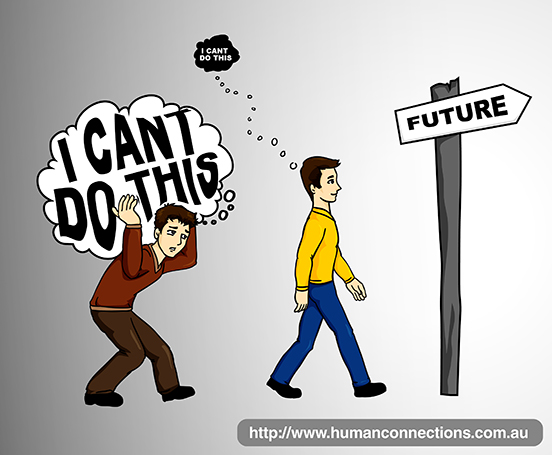I’ve spent 15 years as a Teacher and School Counsellor working with students, particularly Senior students and thought that I understood the pressures and demands that they were under. However, this year, I was genuinely shocked.
In the first 3 months of this year (2013), I have presented to over 6 thousand Year 10, 11 and 12 students across Sydney and we speak about the pressures of the HSC, the Higher School certificate.
I ask students 2 questions, the first one is:
What associations do you have of the HSC, mentally and emotionally?
The responses were overwhelmingly negative.
Then I say to them,
The fundamental response I get to this question is that if they fall short, if they don’t get the mark and if they don’t enter University, their future life career prospects and prosperity is in jeopardy. I say to them straight out, that message, wherever they’ve got it from and however they’ve interpreted it, is false. I reveal to the students that I didn’t do the HSC but have two University degrees and went back as a mature-aged student.
I stressed to Senior students that the HSC and the Senior years are critically important but not for the reasons that they have been told or the reasons that they have interpreted. While the marks are important, what’s much more important is getting in the right mental and emotional state to be able to achieve those results.
My main message and my work with Senior students is teaching them practical mental health skills and psychological tips that will help them get in the best mental and emotional state.
We look at 3 ways Senior students can change their mental and emotional state.
- The first way: Getting into a strong body position.
- The latest research is now saying that our bodies can change our mind and our emotions. Amy Cuddy on a TED talk revealed that with saliva swabs, people who are in strong body positions compared to weak, contractive positions released different levels of hormones including the stress hormone, Cortisol.
- The second and third way: Focus and questions and how questions can focus our mind.
- Today, I wanted to just talk to you about Focus. Let’s do one of the tasks we do with Senior students. Let me just show you in 60 seconds how we don’t have to get rid of negative thoughts and memories out of our minds. A lot of people say, “Well, don’t focus on that negative stuff.” That’s all very well to say but it could be very difficult to somehow remove a negative thought. If you can do it and you can focus on something positive, that’s terrific. But if you can’t, well then you don’t have to do that. What you can do is change how you’re seeing that negative thought or that negative memory. Let’s do this with something positive which is a bit nicer to do.
I want you to focus on a positive experience, a positive memory. Notice whether you were inside or outside, whether they’re people around. You’ll need to do this if you’re not driving a car or doing anything else. But if you could just take 60 seconds and close your eyes now and focus on this positive memory, this positive experience. I want you to make that memory or experience, that image you’re focusing on right now small; make it about 5 cm in height. I want you to make it dark, black and white. Now take that image and put it way out into the distance, as far as you can put it. Just notice what that feels like. It’s that positive memory but it’s small, dark and way out in the distance. Now just change your focus and now I want you to make that image really big, make it huge, make it your height, double your height, triple your height, make it as big as you possibly can. I want you to make it really bright and colorful. Now bring that image right back to where you are and I want you to imagine that you’re stepping into it. Just notice what that feels like.
The thousands of students and teachers I’ve worked with have noticed that when they make the image bigger, brighter and closer, their emotional state intensifies. If you want to have a positive feeling, get in a positive state, think of a positive experience and a positive memory and you just do that. However, if it’s negative and you’ve got all these negative worries and thoughts and images in your mind, then the best thing to do is to make the image very small, make it dark and put it way out into the distance. This, of course, works really well if you are a visual type of person. If you’re more auditory, well then if there are sounds associated to that negative image, you can just play them up so you can make the sounds or the words into a Donald Duck tone or some other character and you’ll notice then that the intensity really diminishes.
I hope that this tip is just a simple thing that can help your students this year. In my presentations, we spend 90 minutes going through practical strategies that will help them get in the right mental and emotional state.
For more information about our Senior Student Sessions and the free online wellbeing resource we provide schools with a seminar booking click here or email [email protected]



